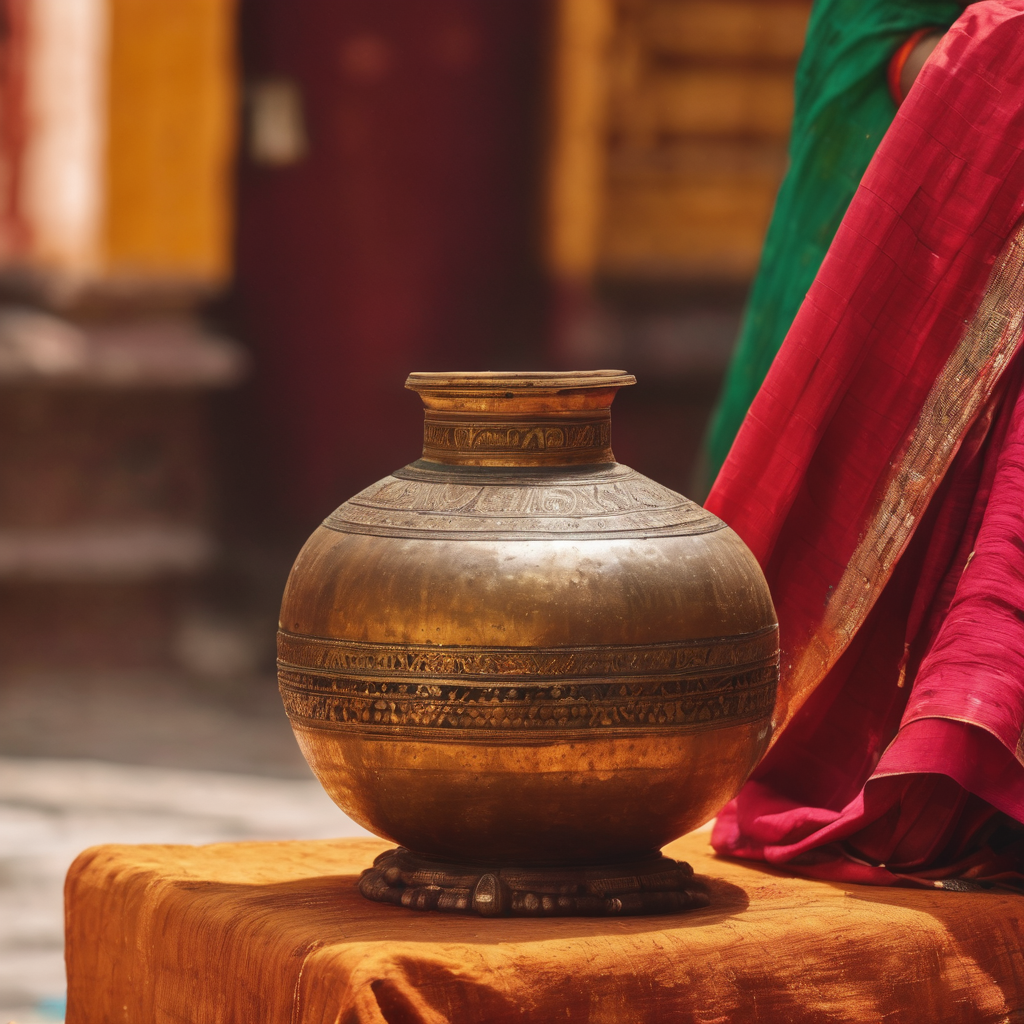The kalash, also known as a sacred pot or pitcher used in Hindu rituals, has deep religious associations and represents prosperity. The Kalash is usually made of brass, copper or silver and ethnic people decorate it with mango leaves, a coconut and sometimes other auspicious objects. It symbolizes the presence of divinity, and is often regarded as a storehouse for cosmic energy.
Symbolism of the Kalash:
Wholeness and Purity: The Kalash symbolizes completeness and purity. Its circular shape suggests totality, unity and the containing nature of the divine.
Fertility and Abundance: Water or sacred substances are frequently put in the pot, symbolizing creation’s womb and source of life. This symbolizes fertility, prosperity and abundance.
Representation of Deity: The Kalash is seen as representing the presiding divinity of whatever rite or ceremony one may be engaged in. During worship, it serves as a receptacle for the divine.

Significance in Rituals:
Purification: The Kalash is generally filled with water, which undergoes purification before any auspicious event or religious ceremony takes place. This holy water is used for abhishekam during worship.
Invoking Divine Presence: adornments including leaves, coconut and usually a swastika symbol–the Kalash is viewed as something of receptacle for divine energies. It is worshiped as a representation of the All-encompassing Energy or Shakti.
Standalone Worship: Some traditions consider the Kalash itself to be a god. Mantras and rites are observed to bring the blessings of Kalash.
Integral in Pujas and Ceremonies: Whether it’s a wedding, housewarming or any religious function–the Kalash is an iconic part of the ceremony. It is conspicuously placed, as a symbol of the divine and for blessings bestowed on this occasion.
Worshipping the Kalash is not simply a physical act. It emphasizes purity, completeness and the divine in all things. It reminds us how the physical and spiritual worlds are connected and encourages us to be thankful for the energies that give life. Essentially, honoring the Kalash in Hindu rituals shows respect for the divine, celebrates plenty, and acknowledges the sacredness of nature’s elements. It’s a beautiful way to symbolize the divine and reflect Hindu spiritual beliefs.

